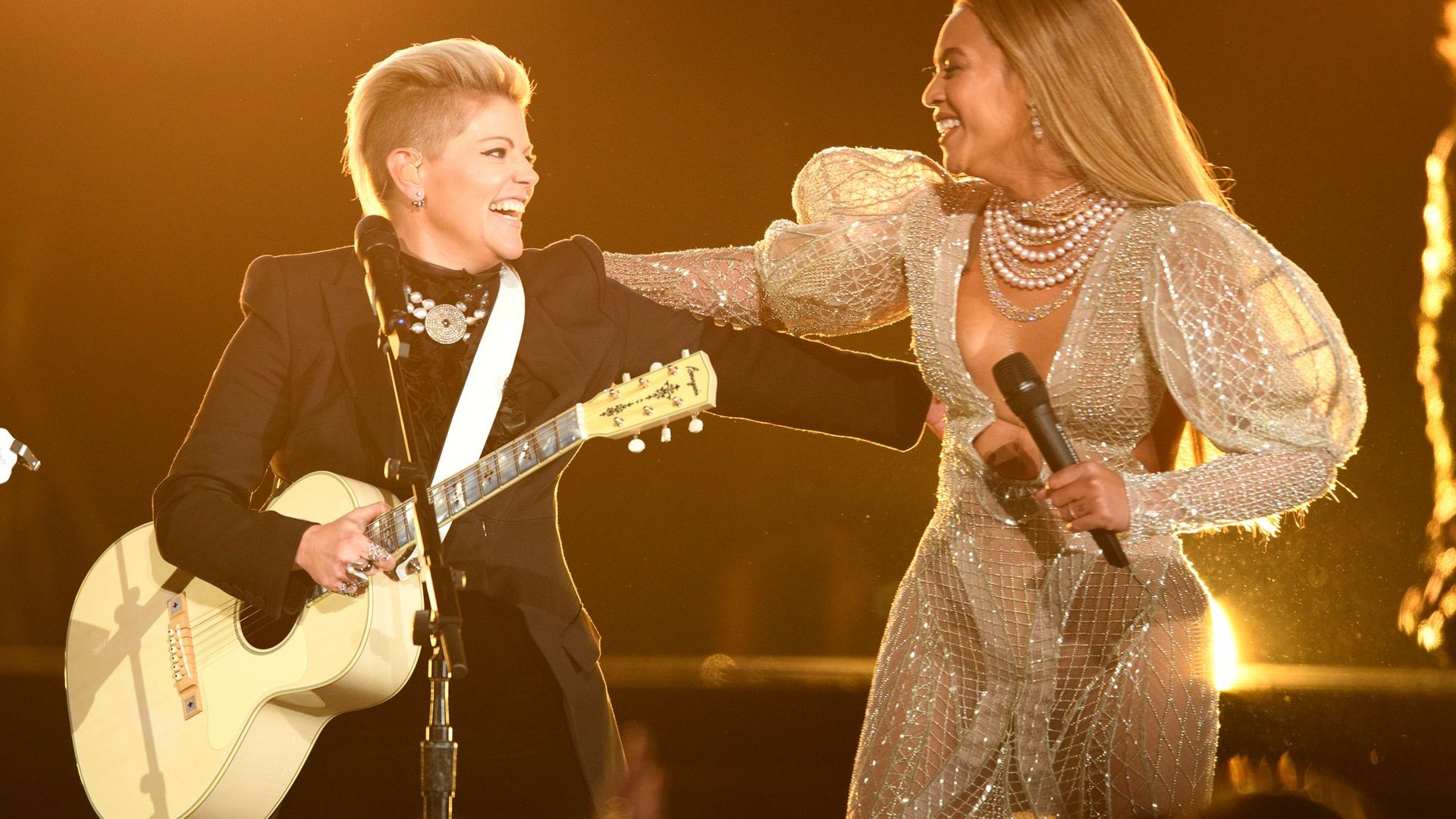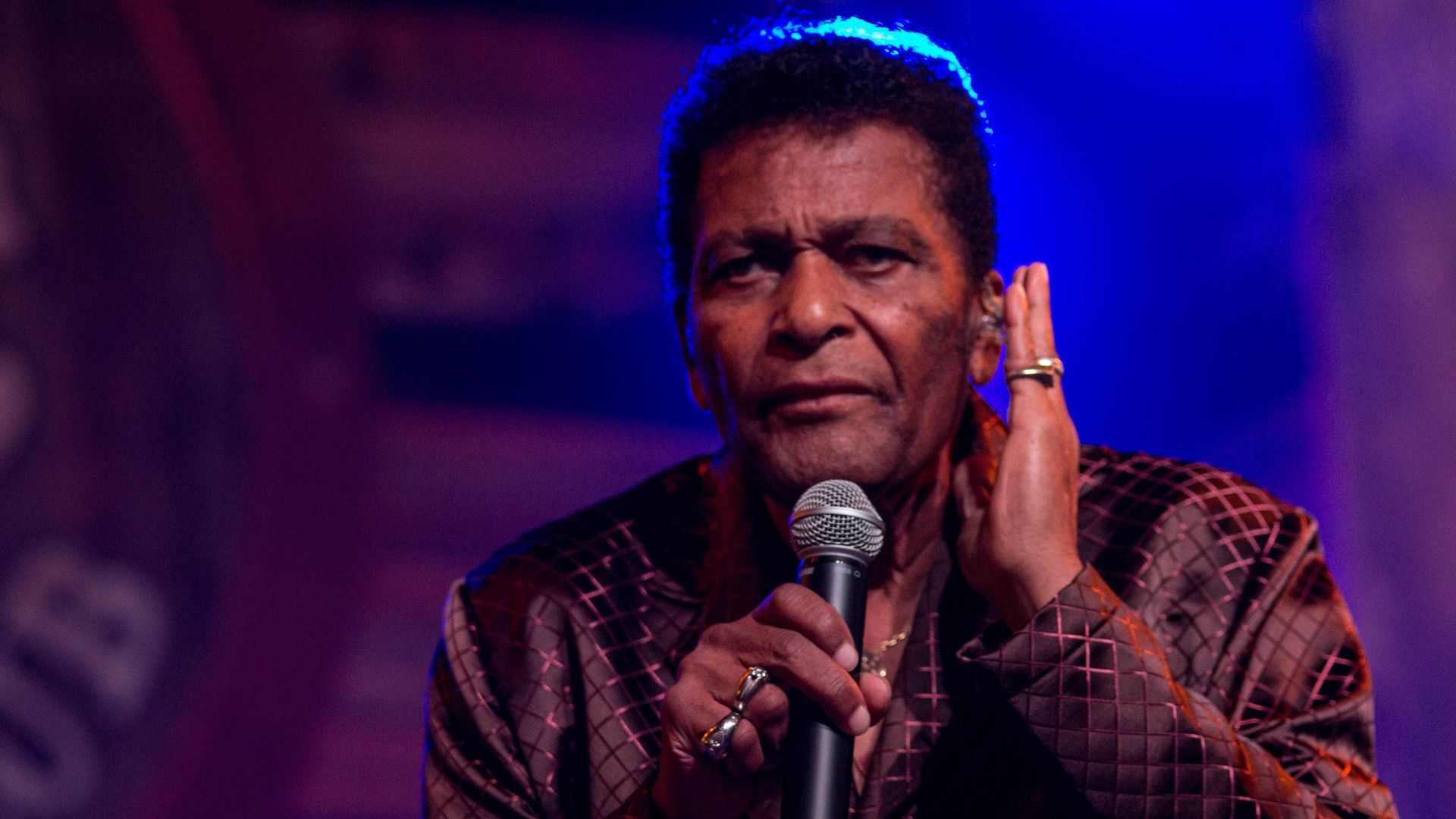On 2nd June 2020, the music industry fell silent for #BlackoutTuesday. The aim, to let the often unheard black voices come to the fore and for the rest of us to shut up, take a moment, listen, and learn. At Folk and Tumble, that's just what we've been doing.
For most of today, I’ve been reading, watching videos, listening to some fantastic music, and most importantly educating myself. Black artists in the realm of country and folk music are few and far between in 2020. From what I always understood, what we call country music stemmed from gospel and the blues, musical styles of the deep south. What happened to the black voices within the genre? Who followed on from the likes of Lead Belly? Who entered when Charley Pride opened the doors of Nashville for country musicians of colour? And who decides what’s country and what isn’t? That’s a question that came to the fore last year.
2019 seems like a lifetime ago. Back then, Lil Nas X dropped ‘Old Town Road’ – major chords, banjo twang, cowboy jeans, and cheatin’ hearts. Sounds like a country record, right? Well, not according to Billboard. Lil Nas X’s original single debuted as No. 19 on the Billboard Hot Country Chart. It was soon pulled from those charts as it didn’t have enough “country elements”. That changed with the re-release when Billy Ray Cyrus added some vocals, and let’s be honest, some white skin into the mix.
OK, so it was great to see a bonafide country star like Billy Ray Cyrus be an ally to Lil Nas X and producer Kio. But, let’s just take a moment and ask ourselves why that was necessary. Country musician Harlan Howard coined the phrase “three chords and the truth” to describe the genre. Alice Randall – the first black woman to write a No. 1 country record – went one step further. She claimed, a country song required three chords and four specific truths.
Life is hard. God is real. Family, whiskey and road are significant compensations, and the past is better than the present. That’s country. Three chords and those four truths.
So that’s a country record defined by the writer of a No. 1 country record, a best-selling author, and a lecturer at Vanderbilt University. Sounds to me like ‘Old Town Road’ was pretty damn country. Sounds to me like a lot of other songs were and are too. Sounds to me like Beyoncé had every right to be on stage with The Dixie Chicks performing ‘Daddy Lessons’.
As you’d expect, Beyoncé owned the stage but unlike other shows, the audience seemed unenthused, awkward, or just downright offended. The occasion was the 2016 Country Music Awards and calls instantly came in from viewers threatening to boycott following awards. In the auditorium, rumours circulated that singer Alan Jackson just got up and walked right out of there. Travis Tritt took to Twitter saying:
We don’t need pop or rap artists to validate us.
Mickey Guyton was born and raised in Texas and probably listened to Beyoncé as much as she listened to country records. She’s been singing country songs since she was little but people still struggle to get their head around it.
I have people saying things all the time, like, “Oh my God, you sing country? That’s not you.” But it is me. Why can’t it be me? Why is it not normal? My family is so country!
There’s probably no other genre of music that has become so whitewashed throughout history. Many listeners appreciate the roots of country, folk, and America lie in the deep south among the songs of slaves and migrant workers. But for much too long, Nashville has been a factory of mainstream mediocrity, a theme park of capitalist ideals, white rhinestone suits, white stetsons, and white faces.
Those faces weren’t always white. In the early days of Nashville, one of the biggest names on the Grand Ole Opry radio station was DeFord Bailey with his ‘Pan American Blues’. He was a black man. He was a maestro on the harmonica. He taught Nashville that high and lonesome railway whistle on the harp that artists like Johnny Cash would take mainstream many years later. DeFord Bailey never received the recognition he deserved in his lifetime. He finally became the first African American inducted in the Country Hall of Fame. That was in 2005.
Bailey is far from the only black voice to be silenced in Nashville over time. Throughout the 1920s, black culture became synonymous with jazz and blues. Within the blues, it was the Folk Blues of the deep south that bore all the hallmarks of today’s country music.
Articles like this often cite the banjo’s origin in Africa and the fiddle’s use by enslaved people for entertainment at the big plantation homes. Shameful pieces spout the same names ad nauseum. Yeah, we know who Darius Rucker is. Yeah, we know Ray Charles cut a country record. Yeah, we know Charley Pride is a legend in country music circles. But writers claiming that Charley Pride opened the door for African American musicians in Nashville? Well, I guess if Charley opened those doors, some big white record label executives must be employed as bouncers.
The music industry claims it wants to sell records. In Nashville, this industry can’t even bring itself to admit that the city is built on the hard work of black writers and performers. You might have heard of Lead Belly. Like me, maybe because Kurt Cobain introduced you to his music. You probably haven’t heard of Geeshie Wiley or Elvie Thomas, pioneering performers of country and blues in the 1920s. If you peel off that flaking white paint from the country music picket fence, you’ll find it’s built on black. It’s built on Gospel, blues, and the spirituals of the South. Sister Rosetta Tharpe and Arthur Crudup were playing rock’n’roll long before Elvis Presley shook his skinny white hips on national TV.
Again, the music industry claims it wants to sell records. In days gone by when radio was royalty families would gather around. In the southern states, people like Al Green, Esther Phillips, Candi Staton, and Bobby Womack grew up listening to country songs. They all went on to record country songs or soul versions of others country songs. Most famously, in 1962, Ray Charles released ‘Modern Sounds in Country and Western’. Talking about the record in his autobiography he stated:
You have to understand that the south was full of country and western sounds. I can’t recall a single Saturday night in those days when I didn’t listen to the Grand Ole Opry on the radio.
With Lil Nas X officially making it in country music circles, surely it’s time now for Lil Tracy, Travis Scott, Young Thug, or “hick-hop” act Cowboy Troy to follow on. Yet, the industry is predominantly white. Record labels are for the most part run by white men. The business has real issues in dealing with racial bias and – let’s be honest – every other form of discrimination imaginable.
Of course, it’s pretty easy for me to sit here and type in my bubble of white privilege. I’ve never had to fight to get my voice heard. I’ve never been the victim of hate crimes, intimidation, or racist attacks. I’ve never been afraid to step out of my home just because of the colour of my skin.
Is Folk and Tumble part of the problem within the wider music industry? Sure it is. Researching, writing, and making the playlist below was a real education for me even as someone well-versed in the subject of Americana music. I’ve learned a hell of a lot in the last few days and this is your chance too. It’s time to kick the confederate flag out of country music, time to acknowledge the roots of the genre, and time to support BAME artists working in the industry today.
This isn’t just about music anymore. It doesn’t matter if you enjoy pop, rock, punk, hip-hop, R’n’B, blues, jazz, or country. Listen to these artists. Listen to black people. Listen to their music. Listen to their words. Listen to their cries for help. Listen. Learn. Love.
If you would like further information on what #BlackoutTuesday is all about, would like to educate yourself more on black voices in the music industry, learn how to tackle everyday racism, or help in the ongoing human rights crisis in the United States of America please visit The Show Must Be Paused.

